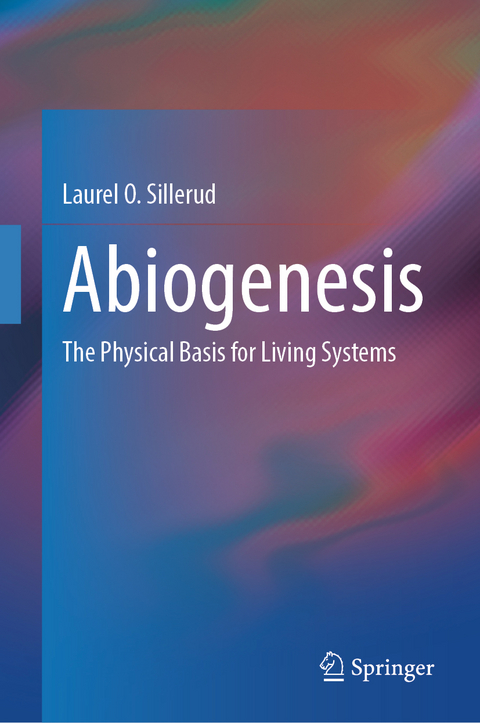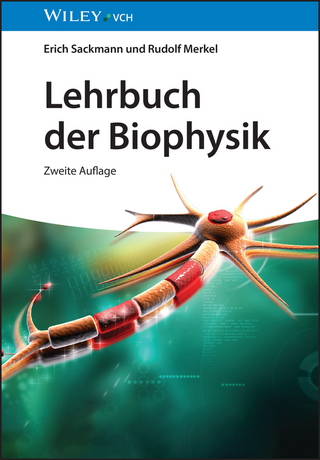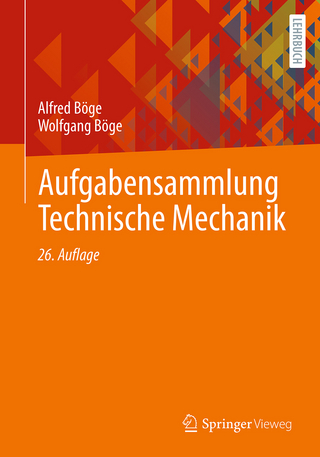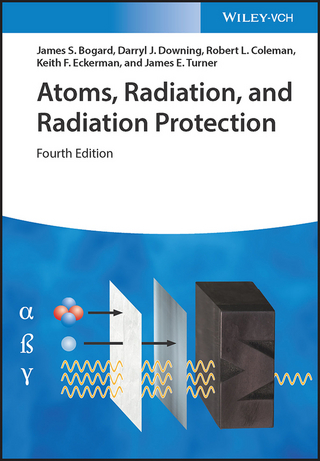
Abiogenesis
Springer International Publishing (Verlag)
978-3-031-56686-8 (ISBN)
This textbook serves to teach readers about the origins of life, the probabilistic process of self-assembly underpinning all living systems, from a biophysics perspective. The author cohesively summarizes the various organizing principles that led to the development of an ordered physical basis on which the evolution of life operates. This book answers critical questions, such as why life depends on the properties of inanimate objects and how the laws of physics, chemistry, and biology convolved to spontaneously produce the periodic table and, of course, life itself. Readers are provided with an introduction to probability distributions as well as detailed descriptions of important concepts in thermodynamics, statistical mechanics, and quantum mechanics. As the book progresses, an understanding for the inevitability of life is developed through topics such as stellar nucleosynthesis and prebiotic evolution. Each chapter also includes problems for readers to gain a better understanding of the material. This textbook is accessible to students and researchers of all levels and serves as a comprehensive guide on the physics behind abiogenesis.
Laurel O. Sillerud, 79, is a biophysicist emeritus from the University of New Mexico and an elected Fellow of the American Association for the Advancement of Science. He specializes in the molecular study of living systems including microorganisms, organs, animals, and man, using non-invasive methods, such as nuclear magnetic resonance spectroscopy and imaging, at the UNM BRaIN Center.
After obtaining degrees in Physics (B.A., M.S) and Biophysics (Ph.D.) from the University of Minnesota, he worked closely with Dr. Robert G. Shulman at Yale University to develop NMR spectroscopic studies of metabolism. He then established and directed the Biomedical NMR Center at Los Alamos National Laboratory, as well as a Human NMR Spectroscopy laboratory at the Albuquerque VA Hospital and the MRI core at the UNM BRaIN Center. His numerous writings based on his extensive scientific research contribute to the understanding of metabolism, cancer, Alzheimer's disease, and stroke. In addition, as a result of his vigorous patent activity, he has founded four commercial ventures based on magnetic nanotechnology and NMR and MRI, including Feldmatech and nanoMR, to translate his studies to the clinical diagnosis of human illnesses.
Chapter 1. Energy-directed, Probabilistic, Self-Assembly.- Chapter 2. Can Energy direct probability? Energy, Entropy and the Boltzmann Distribution.- Chapter 3. Space-Time Symmetry and Conservation Laws as Organizing Principles of Matter and Fields.- Chapter 4. Quantum Mechanics: The Self-Assembly of Atoms.- Chapter 5. The Self-Assembly of Molecules: Molecular Quantum Mechanics.- Chapter 6. The Self Assembly of the Universe, and the Elements of the Periodic Table.- Chapter 7. Quantum Mechanical Spin Magnetic Resonance can determine the Structure of self-assembled Molecules.- Chapter 8. Monitoring Metabolism with NMR.- Chapter 9. Probabilistic Diffusion Constrains Self-Assembly.- Chapter 10. Sunlight as a driver of Abiogenesis: The Quantum Mechanics of the Absorption of Light by Biomolecules.- Chapter 11. The Physics of Water.- Chapter 12. Prebiotic Evolution: The Self Assembly of Primordial Biomolecules.
| Erscheinungsdatum | 12.06.2024 |
|---|---|
| Zusatzinfo | XVIII, 847 p. 370 illus., 324 illus. in color. |
| Verlagsort | Cham |
| Sprache | englisch |
| Maße | 155 x 235 mm |
| Themenwelt | Naturwissenschaften ► Physik / Astronomie ► Angewandte Physik |
| Schlagworte | Binomial Distribution • Boltzmann distribution • Convolution Theorem • Gibbs Free Energy • Hartree Fock Method • Molecular Fossils • Nucleosynthesis • Origins of life • prebiotic evolution • Self-Assembly • Spin Magnetic Resonance |
| ISBN-10 | 3-031-56686-6 / 3031566866 |
| ISBN-13 | 978-3-031-56686-8 / 9783031566868 |
| Zustand | Neuware |
| Informationen gemäß Produktsicherheitsverordnung (GPSR) | |
| Haben Sie eine Frage zum Produkt? |
aus dem Bereich


